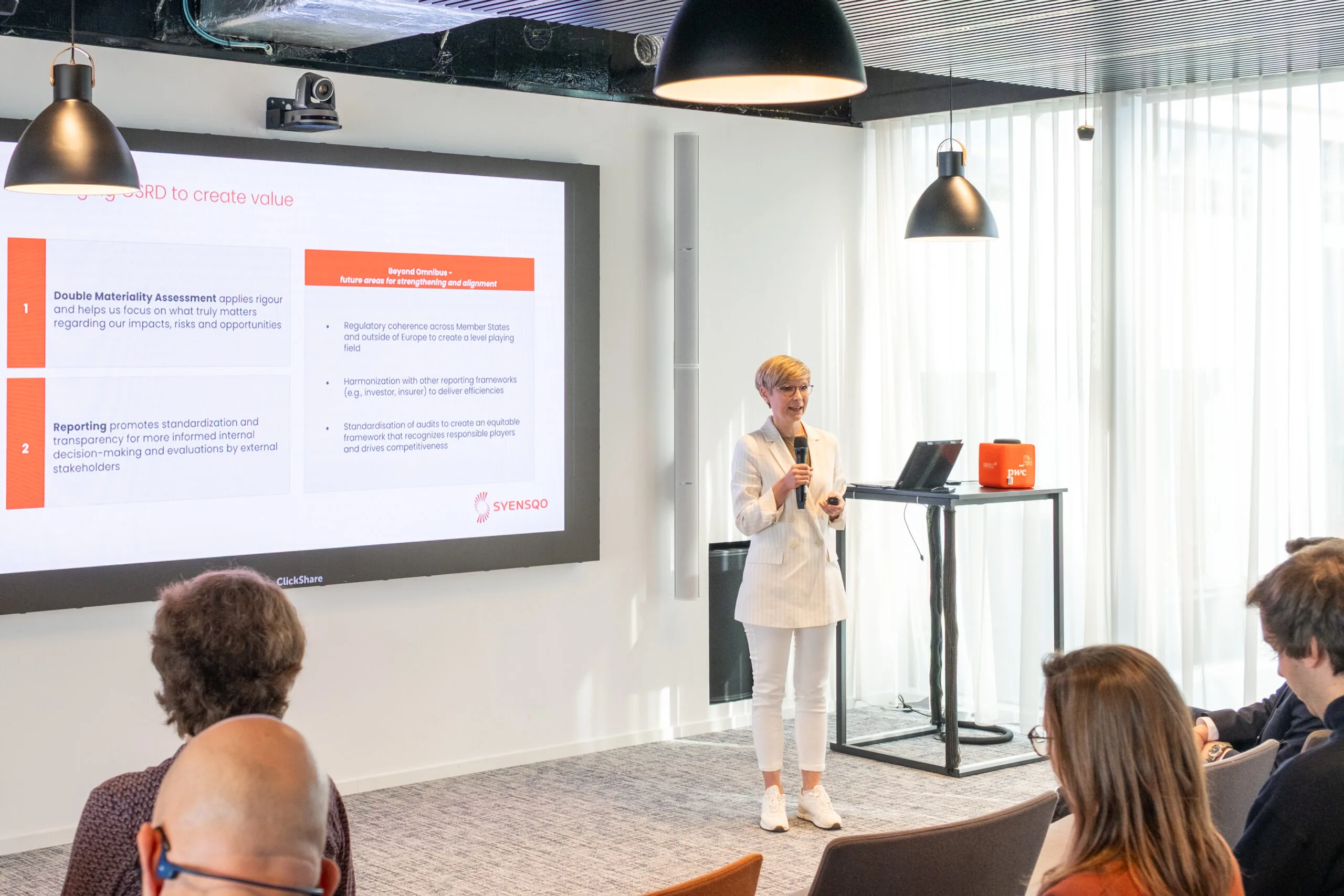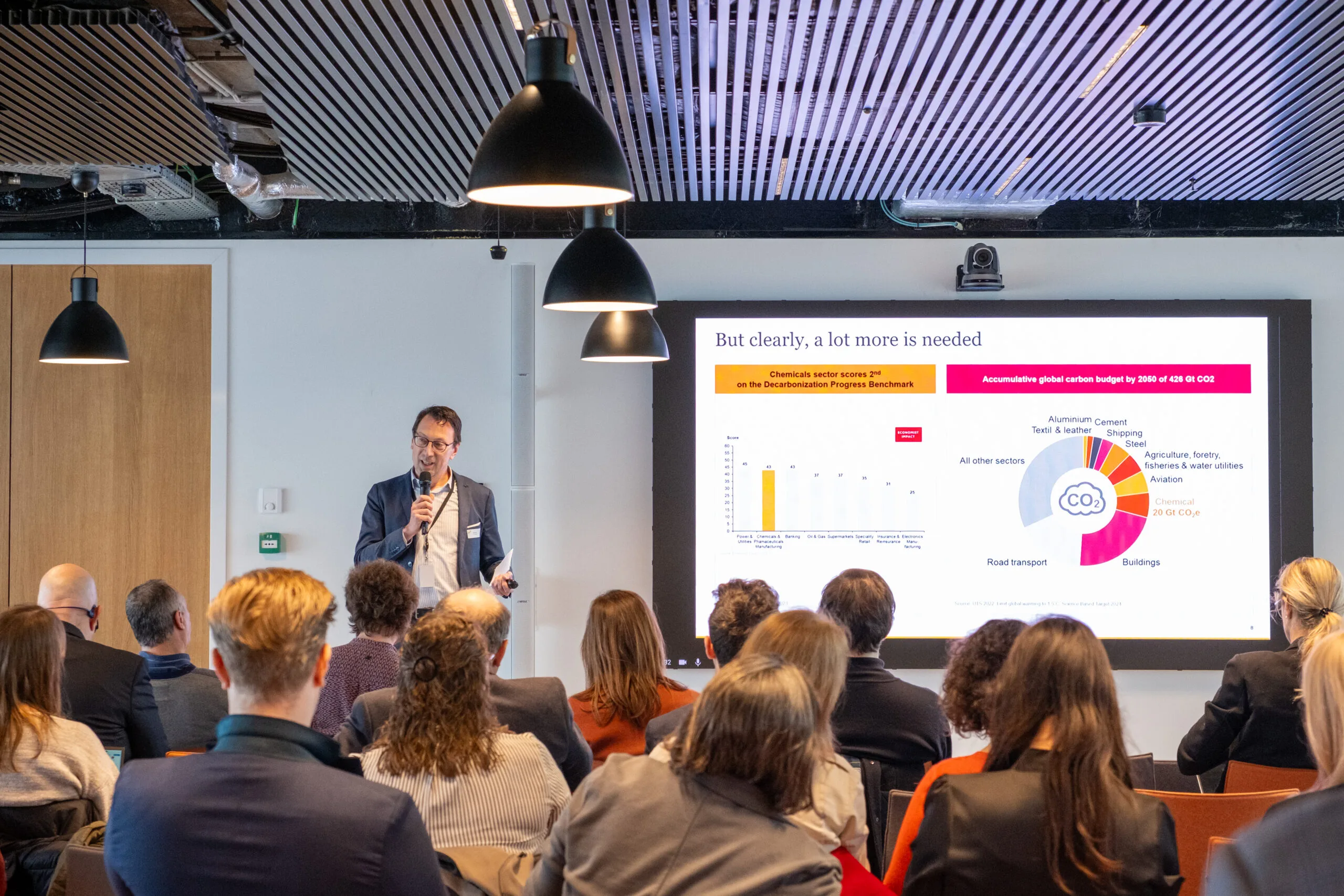Sustainability reporting requirements are evolving, driven by changing global trends and priorities. This evolution is materialised by the European Commission’s recent Omnibus package, which focuses on simplifying and streamlining sustainability reporting. At the recent event organised by PwC and Cefic, ‘Meeting Transparency Expectations: Burden or Opportunity?’, companies were invited to discuss their approach to sustainability reporting beyond regulatory aspects. While highlighting the need for regulatory simplification and reducing the regulatory burden, a key message shared by participants was that sustainability reporting can be used as a tool for measurable impact, risk reduction, and long-term progress — potentially turning it into a competitive advantage.
Key implications of the Omnibus for the CSRD
Mary Kate Frisby from the European Commission (DG FISMA) shared the key proposed changes outlined in the Omnibus package, which impact the Corporate Sustainability Reporting Directive (CSRD). These changes include a two-year reporting delay for companies required to report for the financial years 2025 and 2026, a reduction in scope for large companies (those with 1,000+ employees), cutting the total number of reporting companies in scope by around 80%, and additional value chain safeguards. The proposals now require approval from the European Parliament and Council before Member States can implement it.
Main recommendations from participants of the event included:
Clarity and standardisation in reporting
“Simplification of reporting does not mean making this complex matter simple; it means clarification. The latest Omnibus should provide clarity and guidance, helping to create a level playing field for businesses across Europe,” stressed Titta Rosvall-Puplett, Chief Sustainability Officer at Syensqo, at the event. “When used strategically, standardised sustainability reporting can create significant value, enabling businesses to make informed decisions and seize new opportunities while also providing important insights for their stakeholders,” she added.
Regulatory coherence within Member States and beyond Europe is essential for a level playing field, as highlighted by participants. Aligning reporting frameworks can drive efficiencies, foster innovation, and support sustainable development. A globally standardised approach, along with shared case studies, could also enhance Europe’s competitiveness and growth.
A holistic sustainability reporting approach
Eric de Deckere, Cefic’s Sustainability Director, reminded the audience that sustainability rests on three key pillars: people, planet, and prosperity. Therefore, “effective reporting should integrate material financial and non-financial data, helping businesses track progress and drive meaningful changes across these dimensions of sustainability”, he said. Engaging stakeholders in this process can build trust, help identify risks and trends, and foster collaboration, strengthening their sustainability efforts. De Deckere highlighted the Port of Antwerp’s sustainability reporting initiative during the 2008/2009 economic crisis as an example of how integrating sustainability into economic strategies can enhance resilience and future-proofing.
Early engagement with auditors and data quality management in the reporting process
Marc Daelman, PwC audit advisor and VP ESG commission of the Institute of Registered Auditors of Belgium, highlighted the importance of engaging with auditors early in the sustainability reporting compliance process. He recommended that companies create a clear internal roadmap with a detailed timeline and involve auditors from the start to validate each step. This approach helps minimise unexpected challenges, distribute the workload efficiently, and allows time for mitigation. Additionally, Daelman emphasised the importance of defining stakeholder priorities, assigning responsibilities for sustainability reporting, ensuring high data quality through automated data collection, regularly calculating key performance indicators, and implementing internal controls.
These insights can be used by companies to help transform sustainability reporting into a tool for business innovation, transparency, and long-term value creation.
Guiding companies through the CSRD: Cefic’s support
Cefic is committed to supporting its member companies in navigating the CSRD, addressing compliance challenges and reducing regulatory burden. Cefic identifies the CSRD as a clear candidate for simplification and provides recommendations for reducing the burden.
Cefic also commissioned PricewaterhouseCoopers (PwC) to develop a CSRD handbook, based on a survey of over 100 chemical companies and discussions with industry professionals. As the regulatory landscape around the CSRD continues to evolve, so will the handbook. Regular updates will incorporate new developments, practical experiences, and industry needs, ensuring it remains a relevant and valuable resource.














